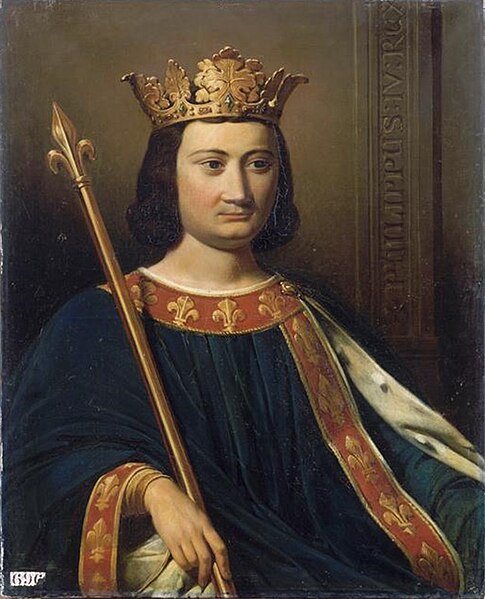Early Life
King Philip IV or “Philip the Fair” was born in 1268 AD, and became heir to the throne in 1276 when his elder brother Louis died from mysterious causes. Due to the mysterious reasons of Louis’ death and his new title, Philip became mistrusting and insecure. In search for a model of his conduct Philip turned towards his grandfather Louis IX. Reports of Louis’ exacting standards of ruler ship and his sanity virtues were enforced upon young Philip by religious advisers, which made Philip believe it was his God-given duty to attain the goals of his grandfather.
Kingship
Philip’s father, Philip III died during a Crusade against Aragon in 1285 AD, which lead Philip to become the new king of France. During his rule Philip showed no interest in crusades and had little to no respect for papal administrations. Philip was the first French king to impose general taxes and taxed his subjects heavily at times. With the Popes consent Philip also taxed French Clergy. With these taxes came large sums of money, however they caused such bitter complaints that they could not be continued.
Quarrel With Church
Due to Philips current policies (taxation of clergy and limiting the jurisdiction of ecclesiastical courts), it was almost inevitable that he got into a quarrel with the church. The church in France was being treated like a branch of the French government which lead to aggression as French bishops were not able or willing to preserve independence. Thus, when Philip arrested Bernard Saisset, Bishop of Pamiers, on a flimsy charge of treason, the pope (Boniface VIII) felt the need to act. Boniface’s exact plans of action are uncertain, however he called the prelates of France to come to council with the king. Philip could not risk such a council and sent Guillaume de Nogaret to arrest the pope as he had his own accusations. Boniface had been elected only a year after his predecessor which is an uncommon act and was already guilty of intemperate language. Nogaret successfully sized the pope at the papal palace of Agani, but Boniface was ultimately released a few days later due to the uprising of the people of Agani. Days after being released Boniface died, it is presumed that he died of shock but it is also rumored to be Phillips meddling. The new pope, Benedict XI, did nothing to avenge his predecessor and reigned only for one year. Soon after the cardinals capitulated by electing French archbishop, who took the name of Clement V.
Persecution of Knights of The Templar
Philip’s newfound interest in uniting the Crusading orders made him mistrustful of the Templar’s as they opposed those plans. Due to this charges of heresy and sodomy were presented against the order in 1305. Clement V refused to take part in this but it was futile as with the support of Nogaret and his own Dominican confessor who was the papal inquisitor in France, Philip decided to size all Knights Templar in France in September 1307.
Significance: Philip IV constantly went against the church, through imposing taxes, limiting jurisdiction and arresting the pope. However, his most significant act was destroying the Order of the Knights Templar, for opposing his plans of uniting Crusading orders, which ultimately brought him substantial financial gain.
Bibliography
[1] Brown, Elizabeth A.R. “Philip IV.” Encyclopædia Britannica. December 01, 2017. Accessed February 26, 2018. https://www.britannica.com/biography/Philip-IV-king-of-France.
[2] Strayer, Jonathan R. “The Reign of Philip the Fair” 1980.
